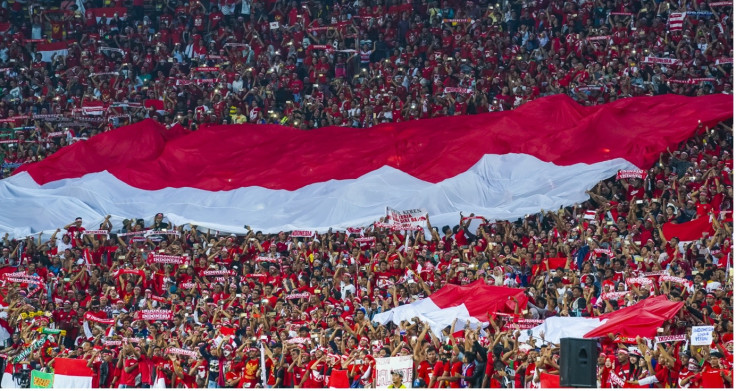Pressure builds on Indonesia's foreign ministry to decide on Israeli participation at the U-20 World Cup
The 2019 FIFA U-20 World Cup found its home in Poland, a football-mad nation and one with serious international ambitions.
The tournament, by all accounts, was a triumph. Spread across six Polish cities, the flair on the pitch was matched only by the passion off it, while Poland's lesser-known cities such as Lublin and Tychy reaped the rewards of being in the global spotlight.

This May, the tournament will kick off once again in Indonesia – a nation that equals Poland's ambition and national pride but with the international star power to match.
And yet, despite the numerous stadiums that have been refurbished and built from scratch across the Archipelago, Indonesia's media and social media have been splashed with negative headlines and the words of angry fans in recent days.
The source of this tension? The participation of the Israeli football team; worthy qualifiers but representing a country that Indonesia does not engage with diplomatically and has always firmly opposed for its treatment of the Palestinian cause.
Indonesia's Football Association (the PSSI) has been clear that its mandated remit is the team and the logistics, not the politics. As such, the PSSI has set out that if Israel's team arrives in Indonesia to participate in the tournament, then their safety will be guaranteed.
The question is, however, who decides if they do come? Even a cursory glance at social media over the past week has demonstrated that Indonesians are looking to the country's foreign ministry to set out its stall.
The Government itself seems to be broadly in agreement with its electorate. Indeed, Minister of Youth and Sports Affairs Zainudin Amali affirmed this Saturday that the issue was a diplomatic one and therefore fell under the remit of the Ministry of Foreign Affairs.
'This is a lot of the MFA's duties, and I believe the MFA, God willing, handles this, its diplomacy and politics. The Ministry of Foreign Affairs is experienced, and able to do according to what is prepared', said Amali.
Unbeknownst to many, Indonesia is home to more Muslims than any other country in the world. In actual fact, there are more Indonesian Muslims than all the Muslims in the Middle East combined.
Its commitment to the Palestinian cause, as stated earlier, is resolute as a result. Indonesia maintains a laser-like focus on economic growth, but this is a foreign policy issue on which it has always made itself heard.
Foreign Minister Retno Marsudi will know this, of course. She's an experienced politician and a capable diplomat; representing her country on the world stage since 2014 and often explicit in her support for Palestine.
This makes her reticence to decide one way or the other – if the Israeli team can come, or if it cannot – even more surprising.
Moreover, while the ongoing controversy has upset many millions of Indonesians, it is also serving as a distraction from what the U-20 World Cup (quite obviously) is all about: the football.
A well-known infrastructure powerhouse, Indonesia has applied its knack to this summer's upcoming tournament.
Taking place across six cities, from the coastal capital Jakarta to the beloved island of Bali in the country's east, the World Cup is the talk of every town and locals are confident that it's going to put Indonesian sport on the map.
They will hope, therefore, that the foreign ministry can now draw a line in the sand. While different international stakeholders will take different views, it's up to the relevant government ministry to make an evaluation, come to a decision, and then execute its policy.
The summer of 2023 looks to be a meaningful one for Indonesia; it would be a shame if politics got in the way.





















